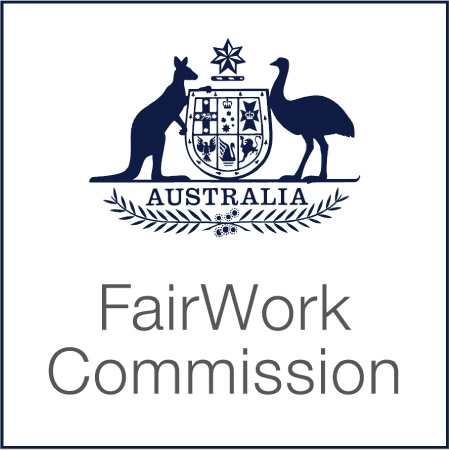21.2 Fair Work Commission and Fair Work Ombudsman
The Fair Work Commission (FWC), formerly known as Fair Work Australia (FWA), was established by the Fair Work Act 2009 to be a one-stop shop for information, advice and assistance on workplace issues. The FWC has the power to establish and vary awards, make minimum wage orders, approve agreements, determine unfair dismissal claims and make orders to assist employees and employers to resolve disputes at the workplace.
The Fair Work Ombudsman (FWO) is the other key organisation in Australia’s workplace relations system. It is also an independent statutory agency whose role is to:

- educate people about their rights and obligations in the workplace
- investigate any breaches of employee’s workplace rights
- take relevant cases to court to ensure workplace laws are implemented.
The FWO appoints Fair Work inspectors who are entrusted to investigate possible breaches of workplace laws and rights. The inspectors do not act on behalf of either employees or employers and are impartial in their investigations. In the event of a suspected breach of workplace law, the FWO can bring court proceedings to a federal court.
Most Australian workplaces, since 1 July 2009, have been governed by a new system created by the Fair Work Act 2009.
On 1 January, 2010 the National Employment Standards (NES) came into existence providing a safety net for employees covered by the national workplace system. An employer must not contravene a provision of the NES. A contravention of a provision of the NES may result in penalties of up to $10 200 for an individual and $51 000 for a corporation.
The 10 National Employment Standards (NES) involve the following minimum entitlements:
- • maximum weekly hours of work – 38 hours per week, plus reasonable additional hours
- • requests for flexible working arrangements – an entitlement allowing parents or carers of a child under school age, or of a child under 18 years with a disability, to request a change in working arrangements to assist with the care of the child
- • parental leave and related entitlements – up to 12 months’ unpaid leave per employee, plus a right to request an additional 12 months’ unpaid leave, plus other forms of maternity, paternity and adoption-related leave
- • annual leave – 4 weeks’ paid leave per year, plus an additional week for certain shift workers
- • personal/carer’s leave and compassionate leave – 10 days’ paid personal/carer’s leave, 2 days’ unpaid carer’s leave as required, and 2 days’ compassionate leave (unpaid for casuals) as required
- • community service leave – unpaid for voluntary emergency activities and leave for jury service, with an entitlement to be paid for up to 10 days for jury service
- • long service leave – a transitional entitlement for employees as outlined in an applicable premodernised award, pending the development of a uniform national long service leave standard
- • public holidays – a paid day off on a public holiday, except where reasonably requested to work
- • notice of termination and redundancy pay – up to 5 weeks’ notice of termination and up to 16 weeks’ severance pay on redundancy, both based on length of service
- • provision of a Fair Work Information Statement – this must be provided by employers to all new employees and contains information about the NES, modern awards, agreement-making, the right to freedom of association, termination of employment, individual flexibility arrangements, union rights of entry, transfer of business, and the respective roles of the Fair Work Commission and the Fair Work Ombudsman.
Source 21.7 The National Employment Standards